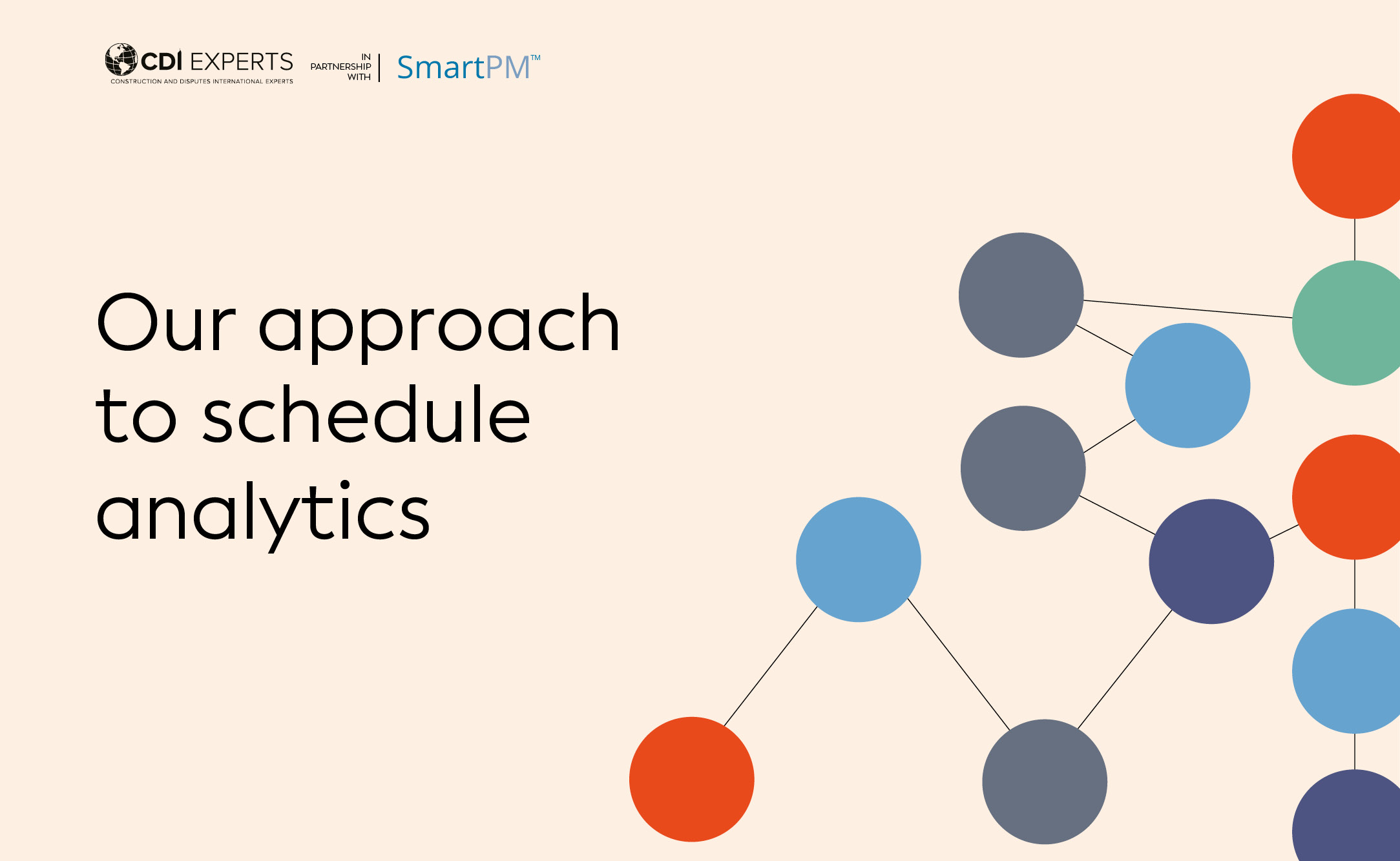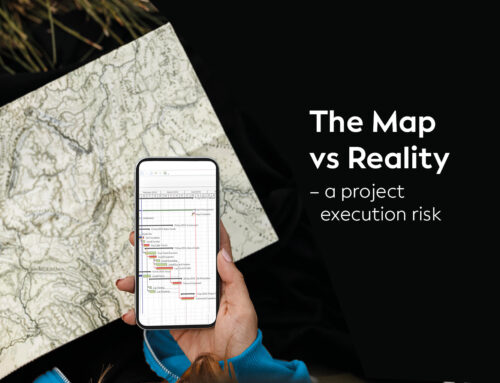According to industry-accepted best practices, as well as DCMA and AACE guidelines, there are three important steps to conducting an effective Project Analysis; 1) Schedule Quality Review, 2) Critical Path Delay Analysis, and 3) Predictive Analytics. It may seem obvious, but it’s worth noting that you cannot analyse delay without first reviewing and correcting schedule quality and integrity. You cannot predict feasible end dates without first understanding historical causes of delay. Therefore, the only acceptable order of operation for analysing project data is 1) Analyse Schedule Quality; 2) Analyse Delay; 3) Run Predictive Analytics. Anything less is likely to be inaccurate and misleading. At CDI Experts we use SmartPM™ CPM technology due to it’s proprietary algorithms that rely on these best-practice methodologies to deliver superior schedule and cost analytics – in a faster, easier, automated way . In this article we present our three-step approach to project analytics and how SmartPM can assist in that.

Step 1: Schedule Quality Review
A well-structured project schedule is at the heart of every successful construction project, which is why Schedule Quality Review is essential to the Project Analysis process. Schedule Quality is also the easiest and most commonly managed aspect of Project Analytics, which explains why there are so many tools designed to help with this step. Unfortunately, most of these tools stop at Quality Review, overlooking Delay Analysis and Predictive Analytics, and ultimately providing very few (if any) actionable insights or business intelligence. In contrast, SmartPM™ identifies high-risk issues affecting the critical path, as well as the key changes impacting the structure and integrity of the schedule. SmartPM™ makes it easy to assess and correct the quality and integrity of every schedule in a fraction of the time, while adding a level of intelligence that no other system provides.
Step 2: Critical Path Delay Analysis
Critical Path Delays are among the most common drivers of overruns, and delay-driven overruns are the most heavily disputed of all overrun issues. This is because for any project, there are likely multiple delays occurring at once, and understanding all of them requires significant time to study the data and develop a complete picture. This process of wading through minutiae to derive supportable analytics that will show the true causes of delay and cost overruns is a lengthy, tedious one. There are proven methodologies for doing it well, which consultants utilise to make sense of all this data. However, they are manual processes, which often lead to subjective interpretations, and ultimately, further disputes. The high costs associated with delays are well documented and usually in the millions of dollars on commercial projects. While many analysts believe they are capable of understanding delays and overruns by simply “eye-balling” schedules and/or cost data and attending OAC meetings, truly understanding delays and overruns requires much more. For example, your team should be analysing delay pro actively, on a regular basis, throughout the project life-cycle, course-correcting as needed, and never getting to the point where consultants and lawyers are needed to manage overruns. But without an automated and data-driven way to conduct continual, contemporaneous delay analyses, most owners and contractors do not have the time or resources necessary to make that ideal a reality. SmartPM™ is the only tool that can do in minutes or hours what would take consultants or scheduling experts several weeks or even months to accomplish.


Step 3: Predictive Analytics
Predictive Analytics are critical to planning appropriately and avoiding cost exposure caused by uncertainty. Predictive Analytics enable stakeholders to identify the best path to project success. By constantly analysing historical performance and variance, an organisation can identify trends and derive insights that can be applied to future projects. As with Schedule Review and Delay Analysis, Predictive Analytics require a significant amount of time to be done well. Unfortunately, most companies have inadequate resources to effectively review schedule quality, analyse delay, and run Predict Analytics on every project. As a result, they expend their available man-hours on the first two, leaving them at risk of relying on unrealistic end dates. Given that critical decisions are made based on a project’s projected end date, missing that date often puts organisations at significant financial risk. By using SmartPM™, companies can increase productivity of project analysts by an average of 8X, which provides enough bandwidth to completely analyse every project at every schedule update in less time. By improving Predictive Analytics, companies avoid the high costs associated with missed end dates and bad business decisions made based on poor information.
About SmartPM
SmartPM™ is the first of its kind, cloud-based, project analytics platform designed specifically for the construction industry. Unlike other construction software, SmartPM™ is a full-cycle project-based, analytics solution, which provides project stakeholders with a 360-degree-view of every project within their portfolio. Key features include: Automated Schedule Analysis, including Schedule Quality Review, Delay Analysis, and Predictive Analytics, which forecasts feasible end dates and helps owners avoid future delays and overruns; Automated Reports, which provide project stakeholders with objective, real-time information about planned versus actual project progress; Executive-Level Dashboards, which provide leadership with a single, integrated view of the entire project portfolio, along with the key insights they need to make informed business decisions, and effectively prioritise the issues and projects that need immediate attention.
If you’d like to learn about SmartPM and what it can do for your project click below.
Follow us for more!
Get the expert edge
Please add your details below and we’ll be in touch as quickly as possible





